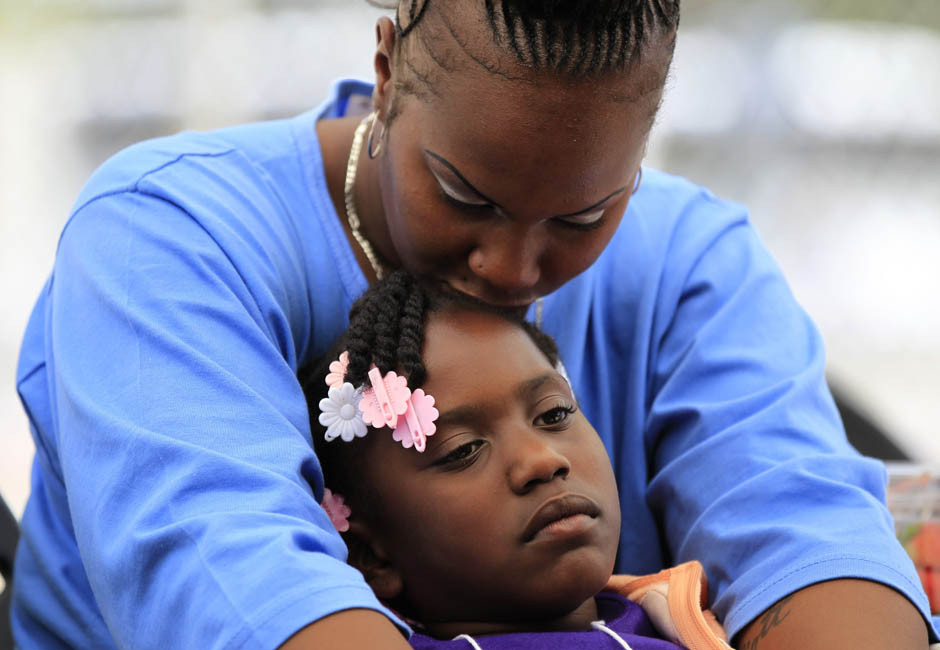
In mid-2019, WIND launched its first in-person course at a recovery home for women on Chicago’s near west side. This initial course blossomed into four regularly offered multi-week programs: Essential Skills, Money Matters, Designing Your Future, and Writing for Empowerment. At the end of each course, participants receive a Certificate of Achievement and a letter to show a judge or parole officer their determination to turn their lives around.
This course focuses on practical skills to help women in reentry articulate their strengths, communicate effectively, and prepare for job or housing interviews. This course includes ample time for practice and role play:
“My goals now are different than they were. Your feedback gave me confidence I was lacking to pursue writing. Writing is not only my favorite thing to do but I feel like I would fall apart without it. I didn’t realize it was that deep until I took this class. I write from a place of injury but you help me realize it’s not just injury but wisdom that should be written… At times we can feel so broken that nothing we do feels good enough. You helped me out of that so thank you!”
– Transition Home Participant
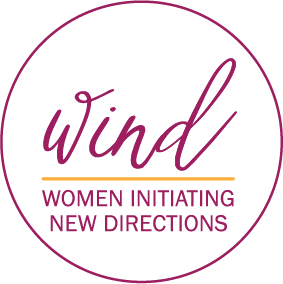
“After taking this class I was able to admit to myself what my true goals are and for the first time I got to look at them on paper… I have made a checklist for when I am free again and I plan on sticking to it 99.9% when the time does come.”
– Designing Your Future Workshop Participant

Done in partnership with community outreach professionals from Byline Bank, this course uses creative methods to teach financial literacy and money management. The goal is to help participants plan for a solid financial future by learning how to manage their money now.
“I want to learn ways to get back readjusted into society without feeling overwhelmed . I want to know how to rebuild my finances and credit with the possibility of having a (criminal) background.”
– Jail Participant

Based on a course developed at Stanford University called Designing Your Life*, WIND uses “design thinking” to help participants imagine multiple paths for healthier, more stable futures. Designers think of “design thinking” as another name for “creative problem solving” and use an array of proven techniques to create new products, systems, and solutions for complex problems. In Designing Your Life, the goal is to use these techniques to imagine and create a life that is more meaningful, productive and joyous.
“This is my first time ever getting in trouble with the law, so I’m lost on the inside just as much as I’d feel lost going back out…..I want to have a plan that I can read over and over so it can be in my brain like a stain that won’t go away.”
– Jail Participant

Expressive writing helps people develop self-understanding, increase self-esteem, explore their creativity, and even heal from trauma. Following this model, Writing for Empowerment introduces participants to new writing techniques while helping them reflect on their feelings, find their voice, and tell their stories. Weekly sessions focus on topics like the following.
“My goals now are different than they were. Your feedback gave me confidence I was lacking to pursue writing. Writing is not only my favorite thing to do but I feel like I would fall apart without it. I didn’t realize it was that deep until I took this class. I write from a place of injury but you help me realize it’s not just injury but wisdom that should be written… At times we can feel so broken that nothing we do feels good enough. You helped me out of that so thank you!”
– Writing for Empowerment Workshop Participant

Supplementing the core programs are 1-2 week sessions focusing on topics of particular interest to the women we serve and led by experts from various fields. For example, WIND has offered special sessions on Housing Opportunities, Ethics in the Workplace, and Women’s Health (“Taking Care of Your Lady Parts”). We are always open to suggestions for these from our partners and volunteers.
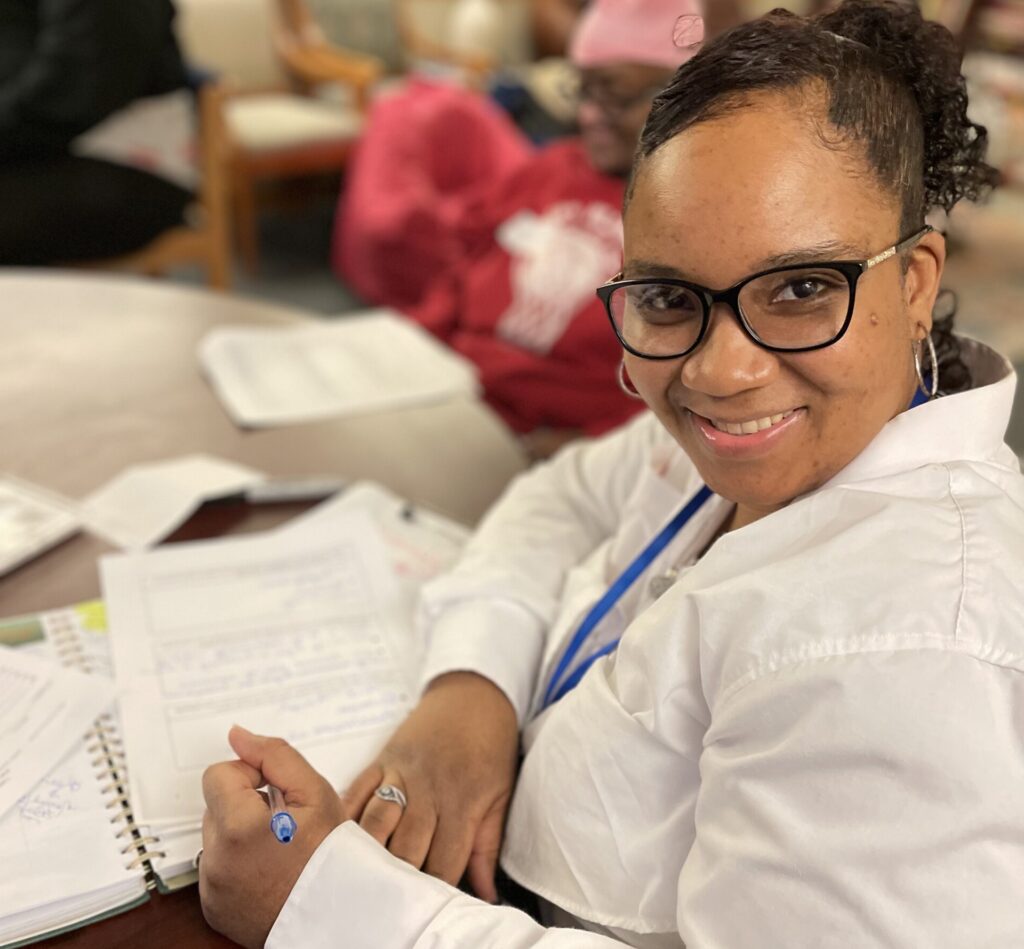
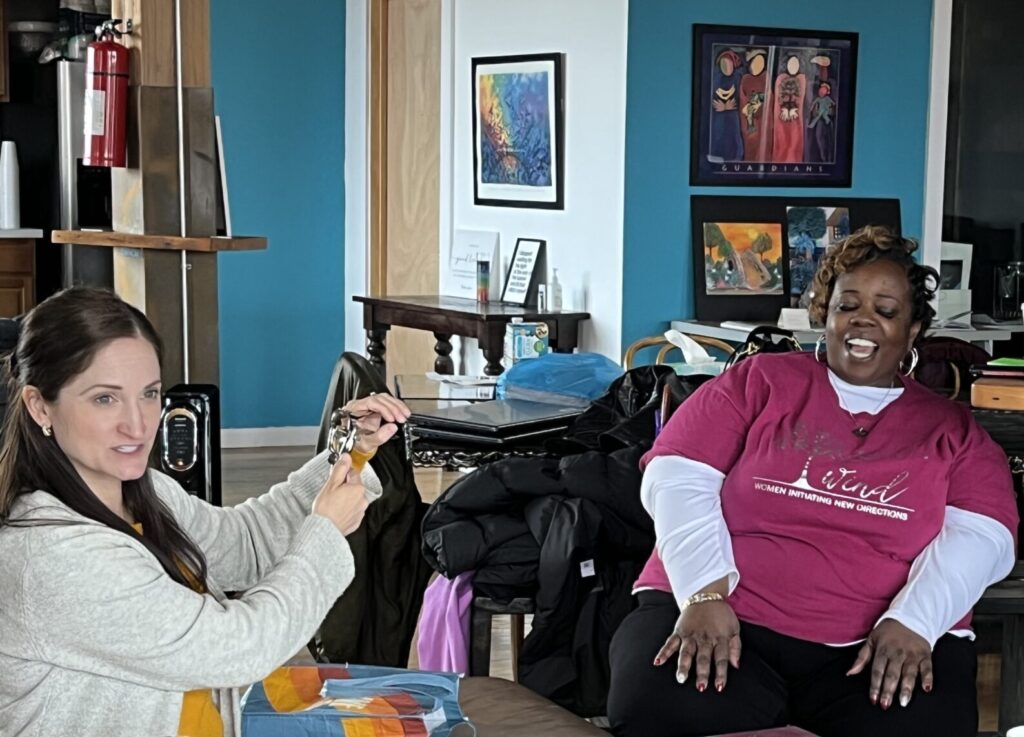
In 2023, WIND launched its newest initiative, CBW. These half-day sessions at our various partner sites are intended to offer services to system-impacted women who are living in the community, not in a reentry facility or transition program. We modify our current curriculum and create new topics that help support women in reentry, the vast majority of whom return to their home communities and need additional services to reduce recidivism.
Community-based Workshops are intended for women who are not residing in a facility, but living on their own and are in need of support because they are at-risk or are formerly incarcerated.
According to The Chicago Reentry Report, 90% of the individuals paroled in Chicago move in with relatives. Only 5% move into transitional housing programs. Every year thousands of women return to incarceration because they don’t have a way to address the root causes that sent them there: trauma/low self-esteem leading to substance abuse with few chances to get therapeutic support plus lack of skills which limits their ability to earn a living wage. Female parolees have greater difficulty obtaining employment and housing than males and are at greater risk of living without homes. Women of color, particularly Black women, face the highest levels of unemployment and homelessness. (Nowhere to Go: Homelessness among formerly incarcerated people, Lucius Couloute, August 2018)
With this data, we saw a large group of women who are not identified as needing services because they are not affiliated with a residential program, but would benefit from the WIND Program. This WIND’s CBW was started to address this need.
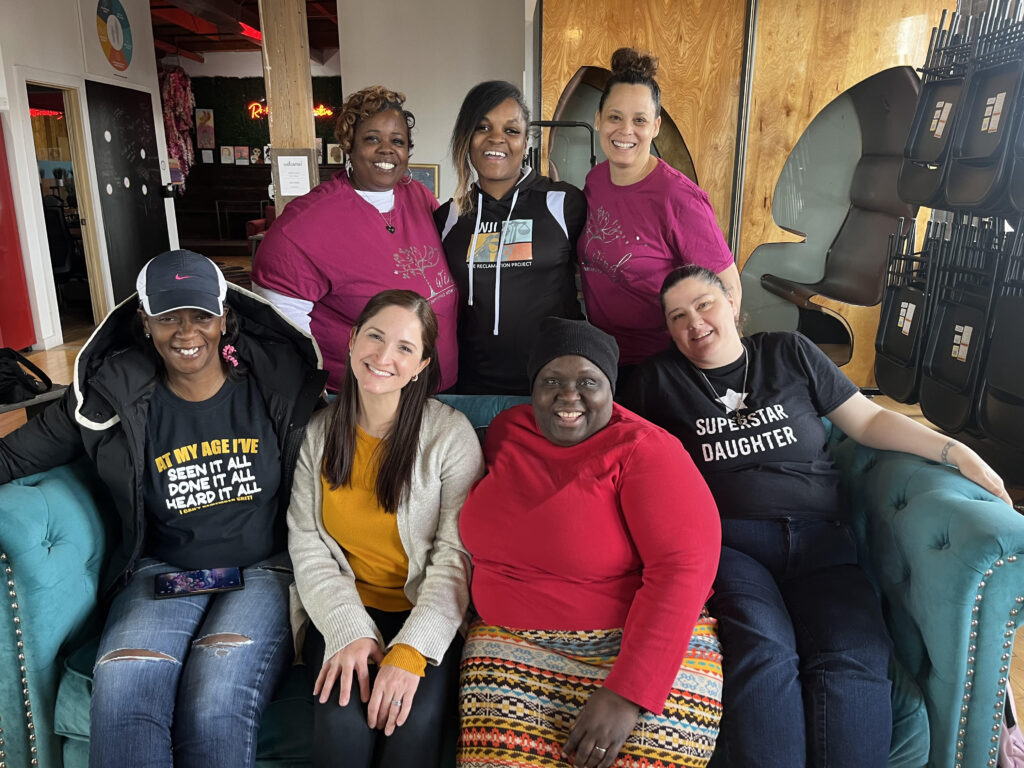
Inspiring women with a history of incarceration or at risk of incarceration to design a thriving life journey using newly learned tools and strategies for success.
WINDProgram.org | Copyright © 2020-2024 | All Rights Reserved.